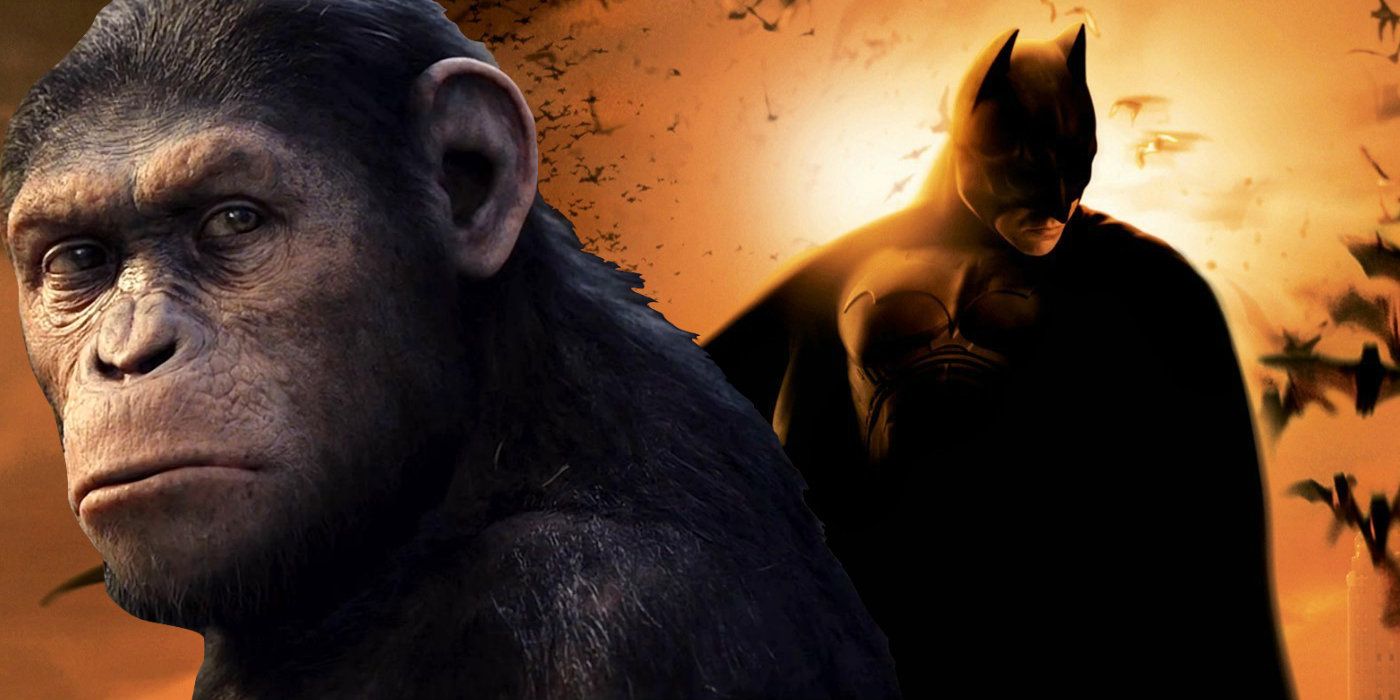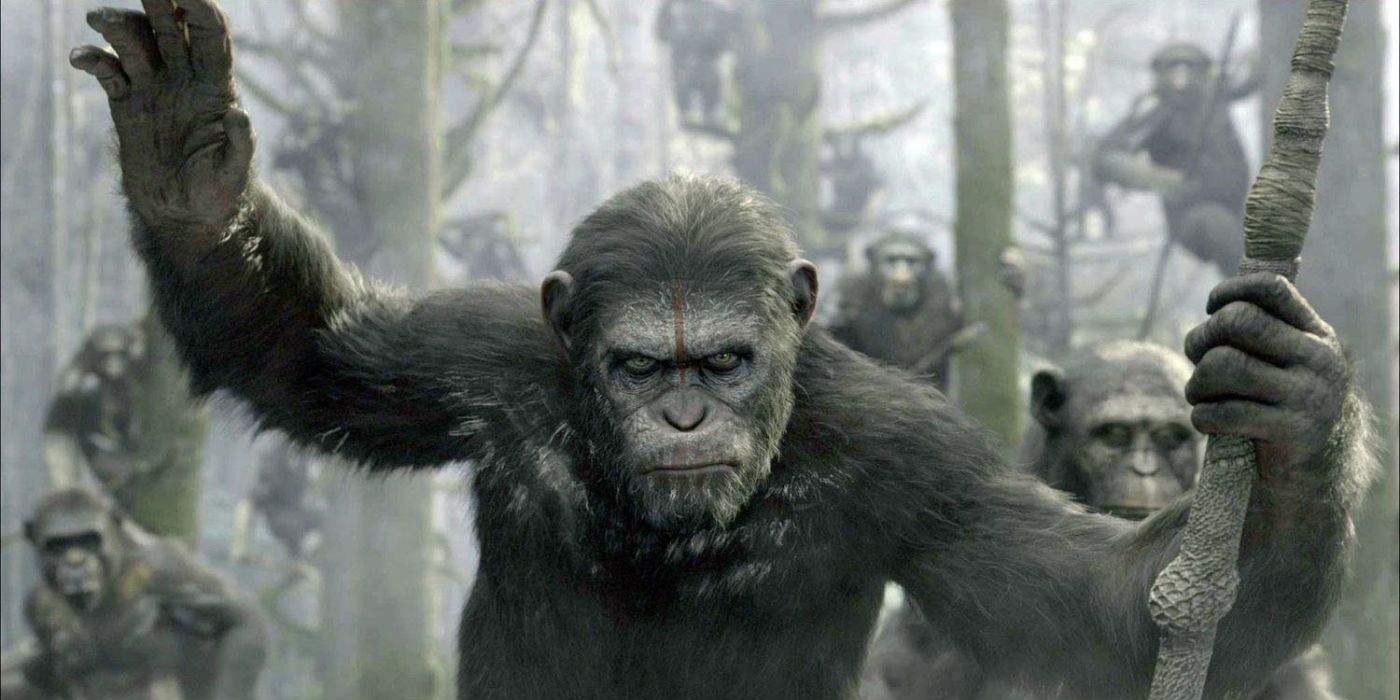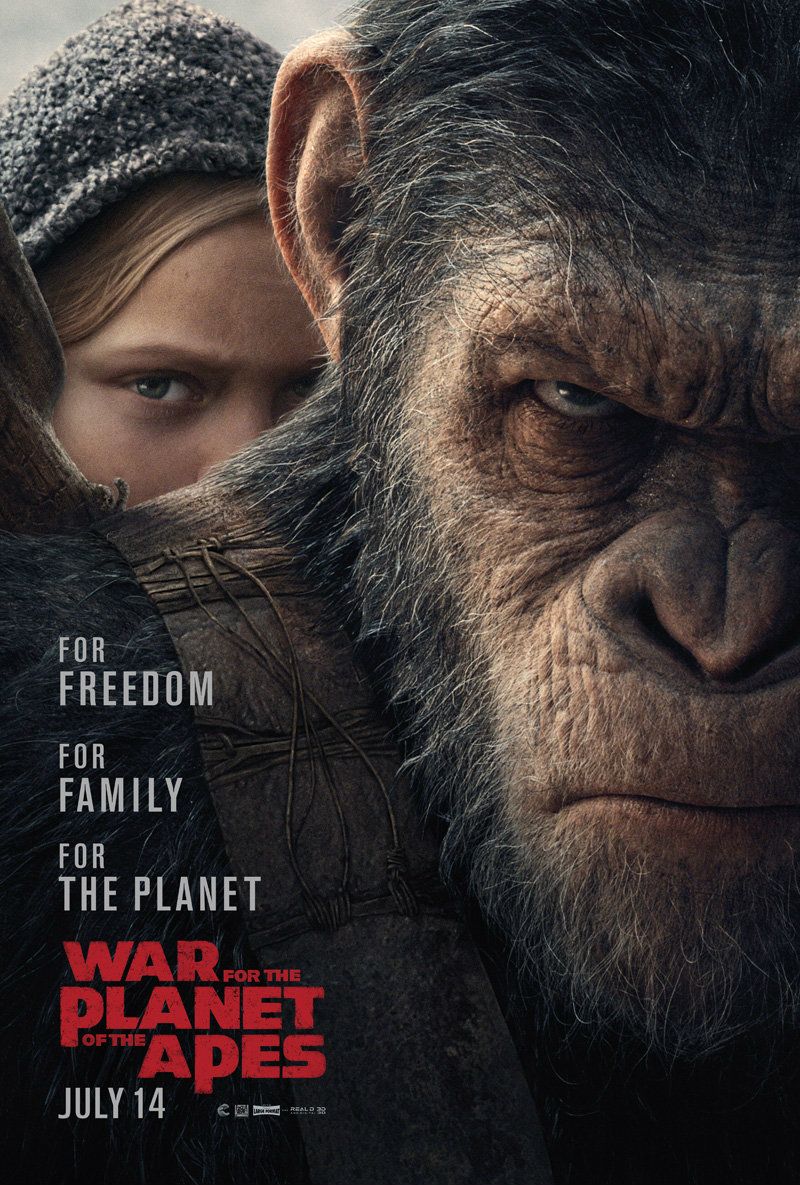Rise of the Planet of the Apes seemed to almost sneak into theaters in August of 2011. Another attempt by 20th Century Fox to revive its famous franchise didn't seem to be something audiences were clamoring for—and the verbose title didn't help things. Even with its all-star cast of James Franco, Frieda Pinto, John Lithgow, and Andy Serkis, the film's success caught many by surprise. Praised for stellar performances, life-like visuals, and more pathos than is normally seen in a summer blockbuster, the film went on to earn nearly half a billion dollars at the worldwide box office.
Serkis' performance as Caesar, the first in the long line of intelligent apes, was especially praised, earning him a Saturn Award while helping to legitimize the role of motion-capture acting in films. 2014's follow-up, Dawn of the Planet of the Apes, fared even better at the box office and gave the franchise its second Best Visual Effects Oscar nod. The third entry in the trilogy, War for the Planet of the Apes, is looming on the horizon and fans worldwide are eagerly anticipating the reveal of the first trailer for the upcoming film.
During the press visit to the War for the Planet of the Apes set, Planet of the Apes franchise producer Dylan Clark talked a bit about why the new version of the Apes franchise has been so successful - for fans both old and new - by comparing it to another recent reboot that outshone its predecessors.
"I think that's what the audience wants. A contemporary audience does not want to relive the old mythologies. Those movies were made at a certain time for a different audience, about different things. These are different characters, we have much more ability to realize them in authentic ways. We want to create our own and further the mythology. Chris Nolan is brilliant. Everyone knows who Batman is but Chris Nolan said, "No, no you don't. Let me tell you what Batman is. I'm going tell you the beginning of Batman and give you his mythology." We're not as big as Batman. We're not as good as Chris Nolan but we looked at that and went, "Oh! That's right. That's what people want." If you're going to show them these franchises in different lights, do it in a different way. Give them some different stuff to chew on. Make it about things they're dealing with now or else, it will feel a little bit antiquated or outdated or just feel like a bad remake - which we've seen."
The comparison to what Christopher Nolan did with Batman Begins (and its two sequels) is quite apt, as both franchises took a more grounded and nuanced approach to the sci-fi source material. Both also had the daunting task of gaining back the audience's trust after the former iterations of the respective film series became mired in camp and absurdity. Many movie goers were skeptical about the prospects of an arresting Batman or Planet of the Apes film, yet each subsequent installment has garnered the people behind the films more praise (and a sizable return on their investment).
The final line of Clark's quote is also telling. While he could be talking about any number of bad remakes (we should know, as we've catalogued quite a few), it's hard not to imagine that he's speaking of Tim Burton's not-so-hot 2001 take on Planet of the Apes franchise. Let's hope that War for the Planet of the Apes makes it a hat-trick for the studio.



